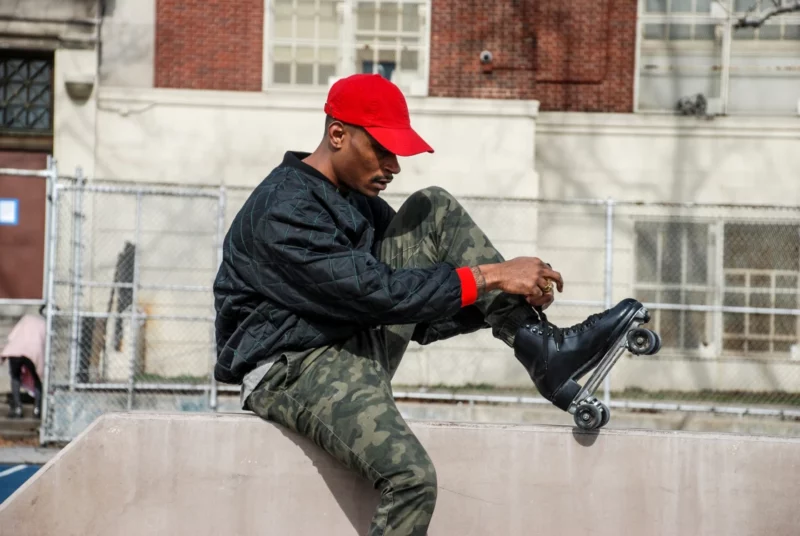Roller-skating, an old-school refuge for Black Americans, is getting a revival
Share
Explore Our Galleries
Breaking News!
Today's news and culture by Black and other reporters in the Black and mainstream media.
Ways to Support ABHM?
By Maya Eaglin and Nicolle Majette, NBC News
Roller-skating is part of the fabric of what it means to be a Black American. One man works to make sure the pastime endures for another generation

The mastermind behind The Roller Wave, a traveling roller disco pop-up, is trying to revive an activity that was once a cornerstone of leisure and kinship in Black communities across the U.S.
Harry Martin, its 33-year-old founder, describes roller disco as “a party on wheels.” His latest project, The Roller Wave House BK, is a long-term installation set up in Brooklyn, New York, that pays homage to “old-school” roller-skating rinks with modern amenities, like a live podcast space and art installations.
[…]
“Growing up in the late ’90s, early 2000s, Brooklyn was notorious for violence. So going to the roller-skating rink, like even just going there, you had to protect yourself in the streets,” Martin said.
The violence was one reason several rinks closed their doors for good in New York City. Not long before Empire closed in 2007, Skate Key shut down in 2006 amid allegations that it was responsible for the increase in violence. Another popular destination in New York City’s West Village, The Roxy, closed the following year, leaving Martin and many other skaters with limited indoor options.
Read about Martin’s efforts to change that.
Black skaters suffered from segregation before and after the Jim Crow era.
More Black culture articles here.
.









Comments Are Welcome
Note: We moderate submissions in order to create a space for meaningful dialogue, a space where museum visitors – adults and youth –– can exchange informed, thoughtful, and relevant comments that add value to our exhibits.
Racial slurs, personal attacks, obscenity, profanity, and SHOUTING do not meet the above standard. Such comments are posted in the exhibit Hateful Speech. Commercial promotions, impersonations, and incoherent comments likewise fail to meet our goals, so will not be posted. Submissions longer than 120 words will be shortened.
See our full Comments Policy here.